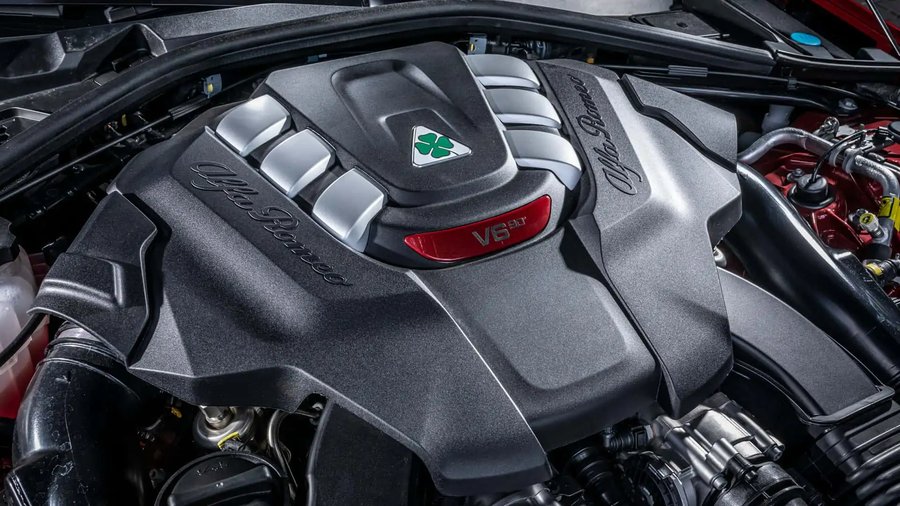Alfa Romeo Will Keep Gas Engines If That's What People Want

Back in August 2021, Stellantis said Alfa Romeo would go purely electric in the Enlarged Europe, North America, and China regions by 2027. Fast forward to October 2024, Alfa's outgoing CEO Jean-Philippe Imparato suggests that might not happen after all. Speaking at the ongoing Paris Motor Show, the 58-year-old executive hinted gas engines are likely to stick around longer than initially planned.
Imparato told Auto Express that Santo Ficili, the upcoming Alfa Romeo CEO, "has the flex" to adopt a more versatile powertrain lineup for the new Stelvio and Giulia. If the purely electric versions of the SUV and sedan won't generate enough sales, both models could get the ICE treatment. This will be possible thanks to the STLA Large platform, which has already underpinned the new Dodge Charger.
The Stelvio and Giulia will both ditch the multi-billion-euro Giorgio platform, which has only been used for these two Alfas and three Maserati models: Grecale, GranTurismo, and GranCabrio. However, the latest Jeep Grand Cherokee's architecture is also derived from Giorgio. Its successor, STLA Large, is labeled by Stellantis as a "BEV-native" architecture but can accommodate gas engines. Aside from Dodge and Alfa, Chrysler and Maserati are also getting new cars with these underpinnings.
In the gas-fueled Charger, there's a twin-turbo, 3.0-liter inline-six with 420 and 550 horsepower. Both are all-wheel drive but there’s a drive mode that routes all power to the rear axle. Dodge won't start production of the Hurricane-powered Charger until the first quarter of 2025.
The next-gen Stelvio is officially coming next year, with the all-new Giulia confirmed to follow in 2026. Imparato told Autocar in Paris a larger SUV is scheduled to land in 2027 as a flagship model with North America as its key market. That one too will sit on the STLA Large platform, so combustion engines might be planned.
If ICE stays, Alfa Romeo would be the umpteenth automaker to backtrack from its lofty EV goals. Nearly all automakers that had promised to go electric by 2030 (or even earlier) have revised course in recent months. There's already plenty of pressure on the European Union to postpone the sales ban on new gas cars in 2035.
Related News
